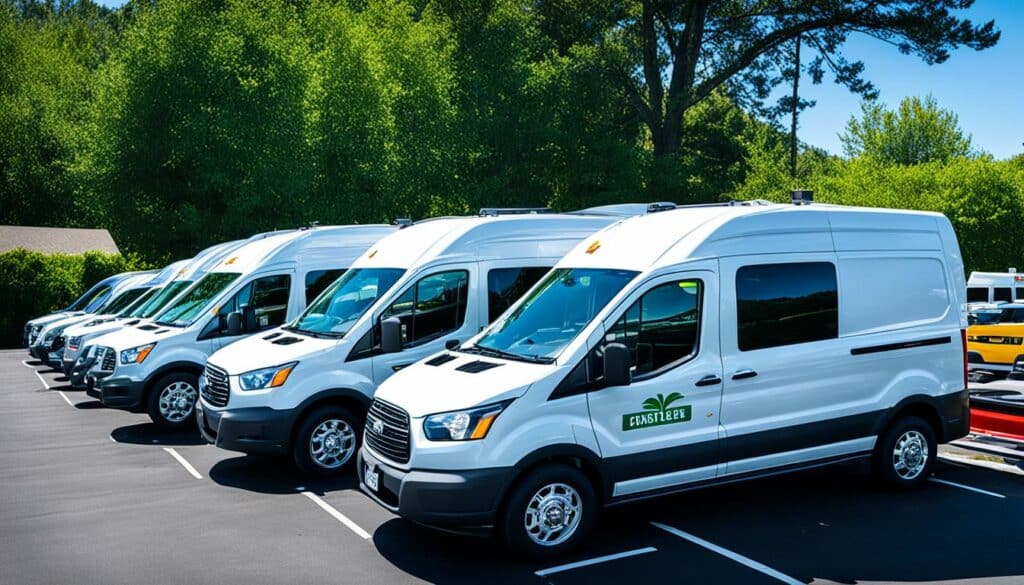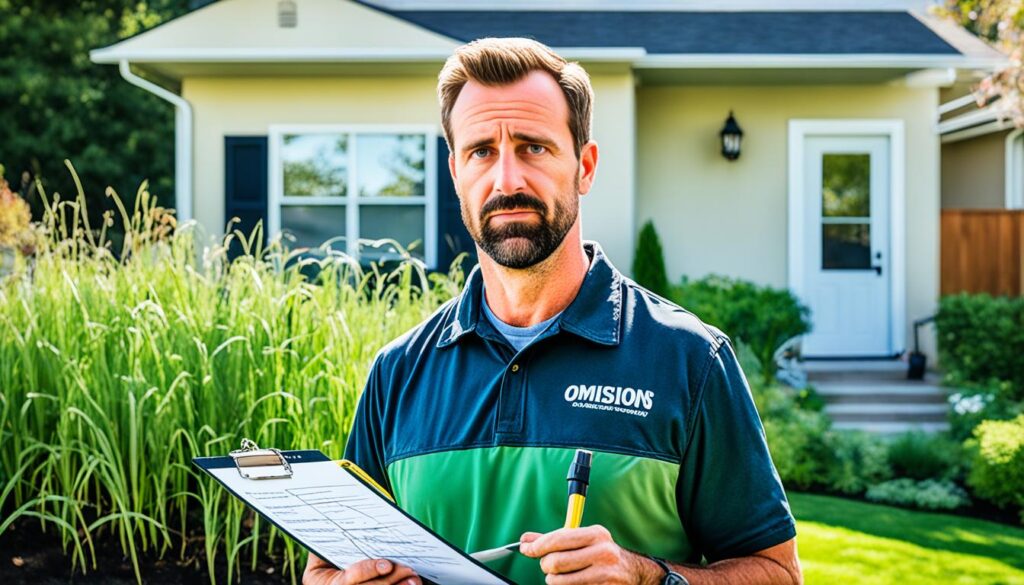Insurance Coverage For Landscaping Contractors,Insurance coverage plays a crucial role in protecting landscaping contractors from potential risks and liabilities. As a landscaping contractor, it’s important to have a comprehensive understanding of the different types of insurance coverage available to safeguard your business.
From general liability insurance to coverage for tools and equipment, there are specific policies that cater to the unique needs of landscaping contractors. Additionally, insuring your commercial vehicles and providing workers’ compensation insurance for your employees are vital aspects of protecting your business.
In this article, we will explore the various types of insurance coverage that are essential for landscaping contractors. By understanding the importance of each policy, you can make informed decisions and ensure that your business is adequately protected against potential risks and liabilities.

Key Takeaways: Insurance Coverage For Landscaping Contractors
- Insurance coverage is crucial for landscaping contractors to protect their businesses from risks and liabilities.
- Understanding the different types of insurance coverage available is essential for making informed decisions.
- General liability insurance provides coverage for bodily injury or property damage caused to third parties during business operations.
- Insuring tools and equipment protects against damage or theft of essential landscaping equipment.
- Commercial auto insurance is necessary to cover the liability resulting from accidents involving commercial vehicles.
The Importance of General Liability Insurance
General liability insurance is a critical policy for landscaping contractors. This policy provides coverage for bodily injury or property damage caused to a third party during the course of your business operations. It offers protection against claims that arise from accidents or incidents that occur while you are working, as well as claims that may arise after the work is completed. General liability insurance is essential for the long-term success of a landscaping business.
Also Read : Understanding Agribusiness Insurance For Farm Owners
As a landscaping contractor, you work with heavy equipment, use potentially hazardous materials, and operate in dynamic and unpredictable environments. Despite taking necessary precautions, accidents can still happen. Whether it’s a client slipping and injuring themselves on a wet surface or accidental damage to a client’s property during your work, these incidents could lead to lawsuits and expensive legal claims.
Also Read : Shielding Your Wheels: Discovering The Best eBike Insurance Options
By obtaining general liability insurance, you can protect your landscaping business from financial losses resulting from such claims. This insurance policy provides coverage for legal defense costs, court settlements, and judgments related to bodily injury or property damage claims. It also offers coverage for personal and advertising injury, which includes claims of slander, libel, or copyright infringement related to your business marketing activities.
Also Read : Informed Decisions: Exploring Your Cellphone Insurance Choices
Having general liability insurance not only protects your landscaping business and its assets but also gives your clients peace of mind. It demonstrates that you are a responsible and reliable contractor who is prepared for unforeseen accidents and incidents. It can also provide a competitive advantage, as many clients require proof of insurance before awarding a project or signing a contract.
In addition, general liability insurance can provide coverage for completed operations. This means that if a client discovers an issue or damage related to your work after the project is completed, they can still file a claim against your business. With general liability insurance, you have the necessary coverage to address these claims and protect your business reputation.
Also Read : Nonprofit And Social Services Insurance Essentials
When obtaining general liability insurance for your landscaping business, it is important to work with an insurance agent who understands the specific needs and risks of the industry. They can help you assess your coverage requirements based on the scale of your operations, the type of work you undertake, and the number of employees you have. A comprehensive policy should include liability coverage limits that adequately protect your business in the event of a claim.
Also Read : Minimizing Risk, Maximizing Joy: The Benefits Of Wedding Insurance
Insuring Tools and Equipment
Landscaping contractors rely on a variety of tools and equipment to successfully complete their projects. From lawnmowers and Bobcats to excavation equipment, these valuable assets are essential for the smooth operation of your landscaping business. However, they are also susceptible to damage or theft, which can lead to significant financial losses.
That’s why obtaining tools and equipment insurance is crucial for landscaping contractors. This type of coverage provides protection against the repair or replacement costs of your tools and equipment in the event of damage or theft. Whether your tools are stored at your office, home, or jobsite, having the right insurance policy ensures that you can quickly recover from unexpected incidents.
Benefits of Equipment Insurance
Equipment insurance not only safeguards your tools and equipment but also offers peace of mind. Here are some of the key benefits:
- Financial Protection: In the unfortunate event of damage or theft, equipment insurance covers the cost of repair or replacement, ensuring that your business can continue operations without significant financial setbacks.
- Coverage Flexibility: Equipment insurance policies can be customized to meet your specific needs. You can choose the coverage limits and deductibles that align with the value of your tools and equipment.
- Protection Against Various Risks: Whether it’s damage caused by accidents, natural disasters, or theft, equipment insurance provides comprehensive coverage for a range of potential risks.
- Portable Equipment Coverage: Some policies also extend coverage to portable equipment that you may use on multiple job sites, giving you added protection and flexibility.
By investing in tools and equipment insurance, you can protect your landscaping tools and ensure that your business remains resilient in the face of unexpected challenges. Consult with an insurance agent specializing in commercial insurance to find the right policy that suits your needs.
Testimonial: The Value of Equipment Insurance
“As a landscaping contractor, my tools and equipment are crucial to my business. When my trailer was broken into, and valuable equipment was stolen, I realized the importance of having equipment insurance. Thanks to my insurance coverage, I was able to quickly replace the stolen items without crippling my business financially. Equipment insurance has become a non-negotiable aspect of running my landscaping operations.” – Sarah Thompson, Owner of Green Acres Landscaping
As highlighted by Sarah’s experience, equipment insurance is an essential safeguard for landscaping contractors. Don’t overlook the importance of protecting your valuable tools and equipment – invest in the right insurance coverage today.
Protecting Your Commercial Vehicles
Many landscaping contractors rely on commercial vehicles, such as trucks or vans, to transport equipment between different client sites. These vehicles are essential for the smooth operation of your landscaping business, but they also come with their own set of risks. Therefore, it is crucial to ensure that your commercial vehicles are properly protected with the right insurance coverage.

Commercial auto insurance is specifically designed to cover the liability resulting from auto accidents involving your commercial vehicles. It provides financial protection in the event of property damage, bodily injury, or any other liability claims that may arise from accidents caused by your vehicles. Having adequate commercial auto insurance not only safeguards your business but also assures your clients and customers that you take their safety and well-being seriously.
The Importance of Commercial Vehicle Coverage
As a landscaping contractor, your vehicles may frequently be on the road, transporting equipment and materials to and from job sites. This exposes them to a higher risk of accidents and damages. Without proper insurance coverage, you may find yourself personally liable for any injuries, damages, or legal costs arising from accidents involving your commercial vehicles.
Commercial vehicle coverage offers financial protection for a range of risks, including:
- Collision coverage: This covers the cost of repairing or replacing your commercial vehicles in the event of an accident, regardless of who is at fault.
- Liability coverage: This provides protection in case your commercial vehicle is involved in an accident that causes bodily injury or property damage to others. It helps cover medical expenses, legal fees, and settlements or judgments against your business.
- Comprehensive coverage: This protects your commercial vehicles against non-accident-related damages, such as theft, vandalism, natural disasters, or fires.
Commercial auto insurance is essential for any landscaping business that relies on commercial vehicles. It offers the necessary financial protection and peace of mind, allowing you to focus on what you do best: providing exceptional landscaping services to your clients.
When selecting commercial auto insurance for your landscaping business, it is essential to consider factors such as:
- Your specific vehicle requirements
- The level of coverage needed based on the value of your vehicles and the potential risks involved
- Any additional coverage options that align with your business needs
- The reputation and reliability of the insurance provider
It is recommended to work with an experienced insurance agent who specializes in commercial insurance for landscaping contractors. They can help assess your unique needs, provide you with a range of coverage options, and find the most suitable policy that fits within your budget.
The Importance of Workers’ Compensation Insurance
When it comes to protecting your landscaping business and your employees, workers’ compensation insurance is a vital coverage to have. This policy provides crucial financial support in the event of workplace injuries, ensuring that your employees receive the necessary medical treatment and compensation for lost wages.
With the nature of the landscaping industry, which often involves operating heavy machinery, lifting heavy objects, and working in hazardous conditions, the risk of workplace injuries is inherent. That is why workers’ compensation insurance is not only highly recommended but also required by state laws in most cases. It not only protects your employees but also shields your business from potential lawsuits that may arise from workplace accidents.
The coverage offered by workers’ compensation insurance extends beyond medical expenses. In the unfortunate event of a workplace injury, this policy typically includes compensation for lost wages during the recovery period, rehabilitation costs, and even disability benefits if the injury results in long-term impairment.
How Workers’ Compensation Insurance Works
Workers’ compensation insurance operates on a “no-fault” basis, which means that regardless of who is at fault for the injury, employees are entitled to receive benefits. This ensures that employees are compensated for their injuries promptly and without the need for lengthy legal battles.
When a workplace injury occurs, the injured employee typically files a claim with their employer’s workers’ compensation insurance provider. The insurance company then assesses the claim to determine the compensation amount based on the severity of the injury, previous wage records, and other relevant factors.
Workers’ compensation insurance provides peace of mind for both employers and employees. It ensures that your employees receive the necessary support in the event of a workplace injury, while also protecting your business from potential financial devastation caused by lawsuits.
The Cost of Workers’ Compensation Insurance
The cost of workers’ compensation insurance for your landscaping business is determined by several factors. These factors include the size of your workforce, the nature of the work involved, and your claims history. Generally, businesses with a higher risk of workplace injuries may have higher premiums.
It is important to note that the cost of workers’ compensation insurance can vary between insurance providers. That’s why it’s crucial to shop around, compare quotes, and work with an experienced insurance agent or broker who understands the unique needs of landscaping businesses.
Ensuring Compliance and Safety
In order to maintain workers’ compensation coverage, it is essential for landscaping businesses to adhere to safety regulations and implement proper safety measures on the job site. This includes providing appropriate training to employees, using safety equipment and protective gear, and maintaining a safe work environment.
By prioritizing workplace safety, you can not only reduce the likelihood of accidents and injuries but also demonstrate your commitment to employee well-being. This can positively impact your insurance premiums and help to build a strong reputation for your landscaping business.
Understanding Errors and Omissions Liability
For landscaping contractors involved in landscape design, considering errors and omissions liability insurance is crucial. This policy provides coverage for any professional mistakes or errors that may occur during the design of a project. It is specifically designed to protect against claims that may arise from faulty designs or construction. While not all contractors require this coverage, it is a recommended addition to their insurance package for those involved in landscape design.
Errors and omissions coverage, also known as professional liability insurance, safeguards landscaping contractors from potential claims related to their expertise in landscape design. This includes situations where a client alleges that the contractor’s design failed to meet their expectations or caused financial losses. By having errors and omissions coverage, landscaping contractors can mitigate the financial risks associated with such claims, including legal fees, settlements, and damages.
Professional liability insurance is a valuable investment for landscaping contractors involved in landscape design. It not only provides financial protection but also enhances the reputation and credibility of the contractor. Clients are likely to have greater confidence in working with contractors who have this coverage, knowing they are protected in case of errors or mistakes.
Benefits of Errors and Omissions Liability Insurance
Errors and omissions liability insurance offers numerous benefits to landscaping contractors in the field of landscape design. Some key advantages include:
- Financial protection against claims: This coverage protects contractors from costly legal expenses, settlements, and damages resulting from claims related to design errors or mistakes.
- Enhanced professional reputation: Having errors and omissions coverage demonstrates a contractor’s commitment to professionalism and quality workmanship, improving their reputation in the industry.
- Peace of mind: Knowing that errors and omissions liability insurance is in place provides contractors with peace of mind, allowing them to focus on their work without the constant worry of potential claims.
- Protection for the long term: Even the most experienced and skilled contractors can make mistakes. Errors and omissions coverage ensures that contractors are protected against unforeseen errors that may arise in the future.
In summary, errors and omissions liability insurance, also known as professional liability insurance, is a recommended addition to the insurance package of landscaping contractors involved in landscape design. It protects contractors from potential claims arising from design errors or mistakes and provides financial security and peace of mind. By investing in this coverage, contractors can enhance their professional reputation and secure their long-term success in the industry.

| Advantages of Errors and Omissions Liability Insurance | Benefits for Landscaping Contractors |
|---|---|
| Financial protection against claims | Protection of contractors’ finances from costly legal expenses, settlements, and damages resulting from claims related to design errors or mistakes. |
| Enhanced professional reputation | Improvement in the industry reputation of contractors, demonstrating commitment to professionalism and quality workmanship. |
| Peace of mind | Contractors can focus on their work without constant worry, knowing they are protected against potential claims. |
| Protection for the long term | Even experienced contractors can make mistakes. This coverage ensures protection against unforeseen errors in the future. |
Additional Coverages for Landscaping Contractors
In addition to the essential insurance policies mentioned above, there are several additional coverages that can provide crucial protection for landscaping contractors in the ever-evolving and dynamic landscaping industry. These additional coverages encompass a comprehensive insurance strategy that safeguards your business on multiple fronts.
Also Read :
Commercial Property Insurance
Commercial property insurance is an essential coverage for landscaping contractors, as it protects your business property from a variety of risks, including fire, theft, vandalism, and natural disasters. This coverage extends beyond just your physical buildings and can include other assets such as equipment, tools, and inventory. By securing commercial property insurance, you can have peace of mind knowing that your business investments are well-protected.
Inland Marine Insurance
As a landscaping contractor, you often work on various job sites, transporting tools, equipment, and materials from one location to another. Inland marine insurance is specifically designed to cover these portable assets against loss, theft, or damage while they are in transit or temporarily stored away from your primary business location. This coverage ensures that your valuable equipment and materials are protected, regardless of where your work takes you.
Umbrella Policies
Umbrella policies provide an additional layer of liability coverage beyond the limits of your primary insurance policies. For landscaping contractors, where accidents and unforeseen incidents can occur, having higher limits of liability coverage can be invaluable. Umbrella policies provide comprehensive protection against lawsuits, claims, and judgments that exceed the limits of your other insurance policies, giving you an extra level of security and financial protection.
By assessing your specific needs and consulting with an experienced insurance agent who understands the intricacies of the landscaping industry, you can determine the additional coverage options that are right for your business. Implementing a comprehensive insurance strategy that includes commercial property insurance, inland marine insurance, and umbrella policies will provide the additional coverage you need to mitigate risks and safeguard your landscaping business.
| Coverage | Key Features |
|---|---|
| Commercial Property Insurance | Protection against damage, theft, and natural disasters for your business property, equipment, and inventory. |
| Inland Marine Insurance | Coverage for portable equipment, tools, and materials while in transit or stored away from your primary location. |
| Umbrella Policies | Additional liability coverage beyond the limits of your primary insurance policies, providing increased financial security. |
With these additional coverages in place, you can ensure comprehensive insurance protection for your landscaping business, addressing the specific risks and challenges unique to the industry.

Factors Affecting Insurance Costs
The cost of insurance for landscaping contractors can vary based on several factors. These factors include the type of services provided, the size of the business, and the level of risk involved. Insurance premiums are generally higher for businesses in riskier industries and those that offer more complex services.
When it comes to insurance cost, the type of services provided by a landscaping contractor plays a significant role. If the services involve more complex tasks such as tree removal or heavy machinery operation, the insurance premiums are likely to be higher. This is because these services carry a higher level of risk compared to basic landscaping maintenance.
The size of the business is another factor that influences insurance costs. Larger businesses with more employees and higher revenue often have higher premiums due to the increased level of risk associated with their operations. The more employees a business has, the greater the potential for workplace injuries or accidents, leading to higher insurance costs.
The level of risk involved in a landscaping business also affects insurance costs. Insurance premiums are higher for businesses operating in industries with higher inherent risks. For example, contractors engaging in activities like excavation or working at heights are considered riskier and may face higher insurance costs.
To accurately assess insurance costs, it is essential for landscaping contractors to undergo a risk assessment. A risk assessment evaluates the potential hazards and vulnerabilities of a business, helping insurance providers determine appropriate coverage and pricing. By understanding the specific risks associated with their operations, contractors can take proactive measures to mitigate risks and potentially reduce insurance costs.
Factors Affecting Insurance Costs Summary:
- Type of services provided
- Size of the business
- Level of risk involved
By recognizing these factors, landscaping contractors can make informed decisions when obtaining insurance coverage. Working closely with an insurance agent who specializes in commercial insurance can help contractors find a policy that fits their specific business needs and budget.
It’s important to consider both the short-term and long-term implications of insurance costs. While lower premiums may seem appealing, insufficient coverage can leave a business vulnerable to financial losses in the event of an accident or liability claim. Evaluating the risks, obtaining proper coverage, and managing insurance costs can help landscaping contractors protect their businesses and ensure long-term stability.
Next, we will discuss how to choose the right insurance provider for your landscaping business.
Choosing the Right Insurance Provider
When it comes to selecting an insurance provider for your landscaping business, finding a reputable company is essential. Look for an insurance provider that has experience in insuring contractors and construction businesses, as they will have a better understanding of the specific needs of your landscaping business.
Working with an insurance agent who specializes in commercial insurance can be highly beneficial. An experienced insurance agent will have the knowledge and expertise to guide you through the process and help you find the right coverage for your business.
Consider factors such as customer reviews, company stability, and the range of coverage options offered by different insurance providers. Looking into customer reviews can give you insights into the experiences of other landscaping contractors and help you evaluate the level of service provided by the insurance company.
Furthermore, stability is an important factor to consider. Look for insurance providers that have a proven track record and financial stability, as this ensures that they will be able to fulfill their obligations in the event of a claim.
Remember, insurance is an investment in the long-term success and stability of your business
To make an informed decision, it’s recommended to get quotes from multiple insurance providers. This allows you to compare coverage options, premiums, and the level of service provided by different companies. By evaluating multiple quotes, you can find the insurance provider that offers the best coverage for your specific needs.
Why Choose Reputable Insurance Companies?
Opting for reputable insurance companies provides several advantages for your landscaping business. Reputable insurance companies have a proven track record and are more likely to provide reliable and comprehensive coverage. They also have a higher level of customer service, ensuring that your questions and concerns are addressed promptly and effectively.
Also Read:- Unveiling The Best Car Insurance Comparison: Find Your Perfect Coverage Today!
Additionally, reputable insurance companies often offer a wide range of coverage options tailored to the unique needs of landscaping contractors. This means you can find a policy that specifically addresses the risks and challenges faced by your business.

Overall, choosing a reputable insurance provider is crucial for protecting your landscaping business and ensuring its long-term success. By working with an insurance agent who specializes in commercial insurance and considering factors such as customer reviews, company stability, and coverage options, you can confidently select the right insurance provider for your specific needs.
Conclusion
Insurance coverage is a vital aspect of running a successful landscaping business. By understanding the different types of insurance available and choosing the right coverage for your specific needs, you can protect your business from risks, liability, and financial losses.
Consult with an insurance agent to assess your needs and obtain the necessary coverage to safeguard your landscaping business. Remember, insurance is an investment in the long-term success and stability of your business.
FAQs
Q: What is landscaping insurance and why is it important for landscapers?
A: Landscaping insurance is a type of business insurance specifically designed for landscapers to protect their business from risks such as property damage, injuries, and other liabilities. It is important for landscapers to have insurance coverage to safeguard their business and assets.
Q: What are the typical insurance coverages included in landscaping insurance policies?
A: Landscaping insurance policies commonly include general liability coverage, property coverage, workers’ compensation, and commercial auto insurance tailored to meet the specific needs of landscaping businesses.
Q: How much does landscaping insurance cost for a small business owner?
A: The cost of landscaping insurance varies depending on factors such as the size of the business, the coverage limits needed, past claims history, and the types of services offered. It is recommended for small business owners to request quotes from different insurance providers to find an affordable coverage option.
Q: Do landscapers need a certificate of insurance for their business operations?
A: Yes, landscapers often need to provide a certificate of insurance to demonstrate proof of insurance coverage to clients, vendors, or project partners. This document verifies that the landscaper has the necessary insurance protection in place.
Q: What type of insurance do landscapers need to protect their business?
A: Landscapers typically need a combination of general liability insurance, property insurance, workers’ compensation, and commercial auto insurance to adequately protect their business from risks such as property damage, injuries, or lawsuits.
Q: How can landscaping and lawn care insurance help protect a business owner?
A: Landscaping and lawn care insurance can help protect a business owner by providing coverage for various risks such as property damage, bodily injuries, equipment theft, and legal liabilities. Having the right insurance coverage in place can safeguard the business from financial losses.
Q: What are the insurance requirements for a landscaping company in the industry?
A: The insurance requirements for a landscaping company typically include general liability insurance, workers’ compensation insurance (if employing workers), commercial auto insurance for company vehicles, and property insurance to protect business assets.
Source Links
- https://www.thehartford.com/business-insurance/landscaping
- https://www.landesblosch.com/blog/landscaping-contractor-insurance-5-coverages-you-need
- https://www.grangeinsurance.com/tips/most-common-insurance-coverages-for-landscaping-and-gardening-businesses

